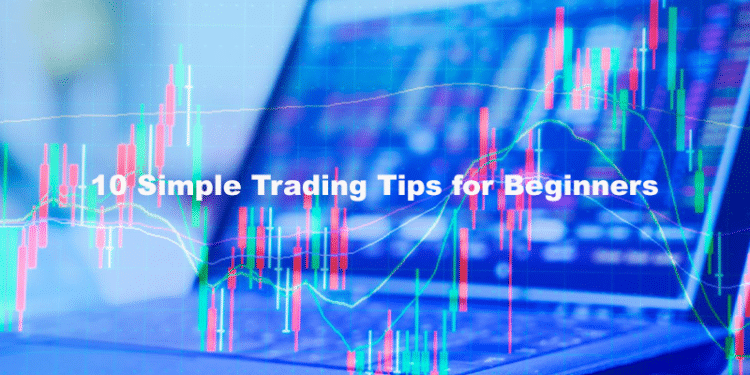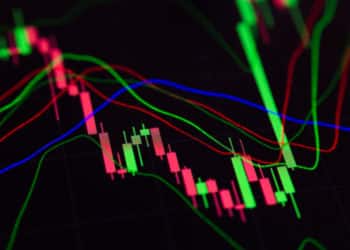The prospect of earning significant profits from forex trading has enticed and attracted millions of traders worldwide. As a trader, if you approach the forex market responsibly, your chances of earning big are automatically increased. However, if you’re a beginner, you’ll lack the experience and jump into trading without fully grasping the nuances of the market. Luckily you can follow some basic tips which will help you succeed in forex trading or at the least help you to keep losses at a bare minimum.
- Understand your market: Most novice traders in forex make the mistake of diving right into active trading without possessing enough knowledge about the market. This includes knowledge about currencies, currency pairs, and factors that influence them. The forex market is influenced greatly by geopolitical and financially driven news, so you should focus on understanding their implications on the market. The success of your trading largely depends on your grasp of the forex market, particularly how each currency pair reacts to news and how they are correlated with one another.
- Build a trading strategy: A significant amount of your time and effort should be focused on forming an appropriate trading strategy before placing your first real trade. It helps you to focus on relevant market events and filter out the noise. There is a myriad of free educational material available on the net, where you can check out the pros and cons of different trading strategies.
Ideally, your trading strategy should include the following things:
- An estimated reward and risk for each trade
- Buy and sell signals
- The times of beginning and ending your trading session
- Your frequency of trading
- A list of technical indicators you’re planning on using
- A stop limit you set daily to protect your base capital
- Don’t aim for getting rick quickly: Many beginners have the misconception that a forex market is a place where one can become rich over a small period. While it is certainly true in some cases, they often disregard the risk and effort required to achieve this goal.
As a novice trader, you should never place extremely large trades in proportion to your account. The chances of these trades being successful in the long-term are slim and it’s highly likely that you’ll end up with severe losses in your account. - Never use too much leverage: Leveraged trading is one of the major reasons why traders from all around the world are attracted to forex trading. Leverage allows you to open large trading positions using a relatively small amount of investment. However, be careful not to overdo this when selecting your trade size.
Leverage is sometimes known as a double-edged sword as it can fetch you enormous profits but can drain you with unending losses if things don’t go your way. It’s possible that you experience a loss equal to your initial amount or even exceeding that amount in some cases. To appropriately trade with leverage, you should have proper risk management systems in place. - Never make random decisions: You should have a clear idea of where you open or close a position based on the strategy or system you’re following. The market may not always agree with the order you make. Making the appropriate settings before you enter the market can help you focus on following your trading plan and not make decisions that can hurt you.
- Build trade discipline: Even though success in forex trading depends on a range of factors, building a trading discipline is a big one. If you approach trading in a disciplined way, taking actions only according to your trading plan, your chances of success increase many folds. If you constantly second guess while trading, you are not taking advantage of having a trading plan in the first place.
- Fight your emotions and don’t let it affect your trading: This is a golden rule of trading. You should always try and keep a calm state of mind to help you stay focused on relevant trading events, it’s important not to let the market’s actions personally affect you. This is one of the reasons why many are choosing Expert Advisors as they eliminate the effect of human emotions from trading. Even though it’s tough to keep your emotions in check while making split-second trading decisions, try not to let emotions like fear, greed, and anger get in the way of your trading plan.
- Always try to use stop-loss orders: When experiencing losses, never hold on to losing positions for too long thinking that the situation will change and you’ll recover. On the flip side, you should fight the tendency to exit winning positions too quickly like a lot of traders do. This eliminates your chances of producing greater returns. For this reason, you should always look to set stop-loss order. This way, the trade automatically closes when the stop loss order is hit when the market moves into that position.
- Always Monitor your positions: As a trader, you should always have a clear idea about your exposure in the market. To control and follow market movements, always have a close eye on how your trades are performing. Make use of pending orders if you think you won’t be able to access the market on the go, as the forex market trades on a 24-hour basis.
- Focus on Money management: Appropriately dealing with money management is what separates amateur traders from the experienced ones. The majority of experienced players only risk a pre-set percentage of their capital. They do not alter that figure no matter what the situation is. Risking just a set percentage of your capital per trade can help you protect against financial losses due to losing streaks.
Conclusion
Thinking about generating profit or potential future losses can cloud your judgment as a trader. The best traders focus on the process of trading rather than on profit or loss. By following the above tips, you’ll be well equipped to deal with the ups and downs of the volatile but profitable forex market.







